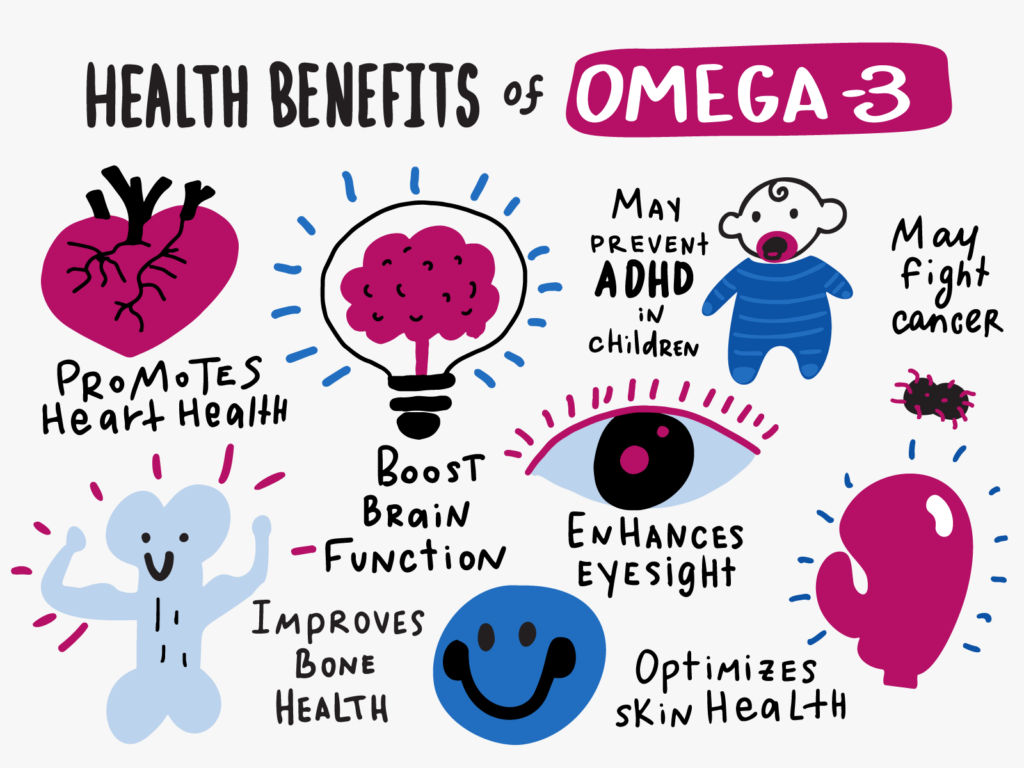Love seafood? Here is one more reason to celebrate your pescatarian diet.
A 2023 study reports that omega-3 polyunsaturated fatty acids derived from fish may help lower the risk of developing chronic kidney disease (CKD).
Fish and other seafood have always been associated with health benefits like decreased cardiovascular conditions, improved brain health, and a lowered risk of stroke.
This article will discuss this research report's findings and list the best food sources for omega-3s.
What Are Omega-3 Fatty Acids?
Omega-3 fatty acids (n-3 fatty acids) are essential fats the body cannot make.
They need to be gotten from one’s diet.
These are also called good fats.
There are three types of n-3 fatty acids found in foods.
- EPA (eicosapentaenoic acid) - This form of omega-3 is found in fish
- DHA (docosahexaenoic acid) - This type of omega-3 fatty acid is also found in fish and other kinds of seafood
- ALA (alpha-linolenic acid) - This form of omega-3 is found in plant sources
The health effects of omega-3 fatty acids come only from EPA and DHA.
ALA needs to be converted into EPA and DHA in the body before it can be used.
Omega-3 Fatty Acid Health Benefits
Omega-3 fatty acids control the cell receptors and are integral to every cell in the body.
Inflammation
Inflammation is the body’s way of fighting an infection or an injury. Chronic inflammation can cause conditions like rheumatoid arthritis, psoriasis, or Ulcerative colitis.
Omega-3 Polyunsaturated Fatty Acids help reduce inflammation in the body and can reduce the risk of developing inflammatory diseases.
Cardiovascular Conditions
Omega-3 fatty acids can stabilize cardiovascular risk factors like high blood pressure, high cholesterol levels, and high triglyceride levels. As a result, it can reduce the risk of developing cardiovascular diseases.
Eye Health
DHA is an integral part of the eye’s structure. When you don’t get enough omega-3 fatty acids from your diet, this may cause vision problems.
Fetus Health
Omega-3 fatty acids are necessary for fetuses' brain growth and cognitive development. That’s why women are advised to include foods rich in omega-3 when they are pregnant.
Better Sleep
Lack of sleep can be the starting point for various health conditions. A 2014 controlled trial study concludes that DHA supplementation in children with sleep problems helped them get more sleep and experience fewer waking episodes at night.

Who’s At Risk For Chronic Kidney Disease?
Chronic Kidney Disease is a condition caused by gradual kidney damage.
According to the Centers for Disease Control and Prevention (CDC), 15% of American adults have CKD. Among these, 9 out of 10 individuals don’t know they have the condition.
Individuals with the following health conditions are at a higher risk of developing CKD.
- Diabetes
- High blood pressure
- Heart conditions
- Family history of CKD or other kidney-related diseases
Study: Omega 3 Fats Lowers Chronic Kidney Disease
In January 2023, a study published in the British Medical Journal (BMJ) explored the relationship between omega-3 fatty acid consumption and the risk of CKD.
Study Participants
This analysis combined the results of 19 studies done in 12 different countries.
Participants details
- Total number: 25,570
- Mean age: 49-77 years
- Mean BMI: 23.2-28.3
- Study period: 11.3 years
The participants belonged to the following 12 countries.
- Netherlands
- USA
- Taiwan
- UK
- Germany
- Finland
- Japan
- Italy
- Australia
- China
Study Findings
Out of the 25,570 individuals, 19.1% (4944) had developed CKD in the median follow-up period of 11.3 years.
The study found that people who consumed higher quantities of seafood had an 8% lower risk of CKD.
The study also mentions that the beneficial effects of omega-3 fatty acids were limited only to DHAs and EPAs. Plant-based omega-3s (ALAs) did not lower the risk of CKD.
Study Conclusions
According to this study, regularly consuming seafood-derived omega-3s (DHAs and EPAs) may help reduce the risk of Chronic Kidney Disease.
While the body may convert some parts of plant-derived omega-3s (ALAs) into DHAs and EPAs, they aren't enough to protect against kidney diseases.
Food Sources of Omega-3 Fats
Two primary sources of EPA and DHA omega-3 fatty acids are marine algae and phytoplankton (microscopic plants found in oceans and freshwater).
The fish and other sea creatures that consume these algae and phytoplankton accumulate DHAs and EPAs in their body.
When humans consume these fish, they receive the omega-3s in turn.
Some food sources rich in DHA and EPA omega-3 fatty acids are
- Coldwater fish like salmon, mackerel, tuna, herring, and sardines
- DHA or EPA-fortified foods like eggs and yogurt
- Omega-3 supplements like cod liver oil, krill oil, and algal oil
Summary
- Eicosapentaenoic acid (EPA) and docosahexaenoic acid (DHA) are marine-based omega-3 fatty acids found in fatty fish.
- A 2023 pooled analysis reports that consuming EPA and DHA-rich foods may help bring down the risk of developing Chronic Kidney Disease (CKD).
- This report states that higher levels of consumption of omega-3 fatty acids reduced the risk of developing CKD by up to 8%.
- Coldwater fish like salmon, mackerel, tuna, herring, and sardines have high levels of EPA and DHA and can be consumed regularly.
- To get the same benefit, people who don’t eat seafood can consult their doctors and consume DHA or EPA-fortified foods or omega-3 supplements.
References
- https://www.bmj.com/content/380/bmj-2022-072909
- https://www.medscape.com/viewarticle/987246
- https://www.ncbi.nlm.nih.gov/pmc/articles/PMC6357022/
- https://pubmed.ncbi.nlm.nih.gov/12540389/
- https://www.ncbi.nlm.nih.gov/pmc/articles/PMC8000043/
- https://pubmed.ncbi.nlm.nih.gov/24605819/
- https://www.cdc.gov/kidneydisease/publications-resources/ckd-national-facts.html




